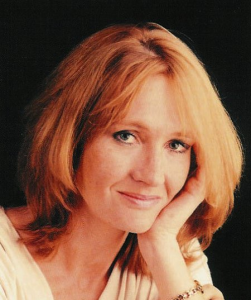Jane Eyre‘s popular reception sparked a publisher’s fight over its author’s next work. Publishers of Harry Potter, meanwhile, are undoubtedly pleased at the Gringott’s-sized sum of $15 billion that the brand is now worth. It’s probably coincidence (or magic) that they look alike, but there are a few literary similarities, too.
Jane Eyre is often read as a bildungsroman, roughly translated from the German a “novel of education.” That’s not to say Jane’s “education” at a hellish boarding school is the novel’s center. Rather, Jane Eyre is a quest for vocation, knowledge, and eventually a spouse. If the phrase “find herself” comes to mind, it might not suggest the novel is cliché; rather, it might suggest that the bildungsroman‘s narrative of growth and progress aligns pretty well with our society’s narratives of success.
Well, guess what: Jane Eyre is rescued from her Aunt Reed and spoiled cousin Georgiana; Harry Potter is rescued his Aunt Petunia, Uncle Vernon, and flabby-but-favored cousin Dudley. Each exits a cruelly confined world for one that’s large and surprising. School teaches them something; leaving school teaches them even more; each bears the weight of petty rivalries and uncomfortable growth, reluctant inheritance and awkward love.
So it’s probably no mistake that Harry Potter is sometimes called a bildungsroman (It’s other things, too – you might argue for adventure novel, hero’s journey, Biblical allegory). I’ve underscored its status as bildungsroman, though, because it’s an important detail for a specific group of people. Those of us around twenty years old have, in some small part, shared a bildungsroman with Harry, Ron, and Hermione.
Harry Potter lasted an immensely long time. Yet it has managed to do so without descending into Hardy Boys-like repetition and absurdity. We had zits when they had zits. We were bored in chemistry when they were bored in Potions. They thought about sex when we thought about sex. And all that meant it did something even Jane Eyre couldn’t do: walk us through the awkward and terrible and joyful scenes of teenhood in roughly real time, without so much as a Time Turner.
True, if I have children, they might read Harry Potter too. They’ll still feel the electricity of walking into Ollivander’s and the fear of You-Know-Who rising and falling and rising. As with contemporary fans, there will probably come a day when they’re too cool for Harry Potter, and then a day when they’re too cool for those too cool for Harry Potter.
But they won’t wait outside Barnes & Noble for the latest release. And they’ll hardly decide to blog about it on their college’s goofy (ed: in the best sense of the word) publications. Maybe we’ve gleaned from Harry the key to good and evil, or perhaps we’ve just found an intricate world to escape to. It’s not that important which it is – and we’re too tangled up in it to know the difference. This generation has the silly and happy privilege to have flitted along these budding witches and wizards just as we figured out the magic and darkness in our own lives. Hagrid could have knocked on any door in Britain, but he knocked on ours.
